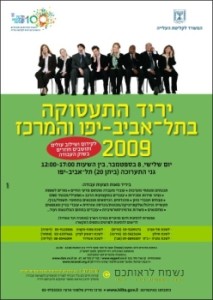Football season is right around the corner. And you know what that means: It's almost Rosh Hashana! And of course, my yahoo inbox is seeing a good share of Rosh Hashana greetings. Amidst the well-wishes, two emails that I got seemed eerily similar to one another - yet significantly different.
On Tuesday, I got an inspirational video greeting from Aish HaTorah and then another one from my alma mater on Wednesday. Here are the links:
Which was more engaging and inspirational for you?

Normally I wouldn't compare these two videos. One is from THE Jewish outreach organization, the other from THE Jewish University. Presumably they are reaching out to different audiences and trying to acheive different goals. What's to compare?
Plenty. Firstly because they arrived in my mailbox one after the other on subsequent days. In my mind, the second email felt like a response to the first (no conspiracy theory here, but I have my suspicions). But more importantly, I'll compare them because the structure was the exact same for both of them. As was some of the content. That tells me that on some level, both organizations are trying to acheive the same thing here.
They both have the generic but inspirational New Age / Contemporary / Jim Brickman-esque piano music thing going on. That's a must. And they both have the obligatory-inspirational-sentence-fragments (OISF for short). Plus the uplifting pictures in the background. The 3 amigos (music/words/pictures) of the genre.
But in my mind, one of them does a far better job of engaging the viewer. It provokes us to think about the big issues by asking us questions that we know are important but rarely stop to ponder. It provides us with a picture of a potentially better future - along with concrete steps to acheive that goal. There is a call to action. Something to do with the inspiration after the video is over.
The other one throws random OISF's at us and hopes we will somehow be inspired (to do what exactly?). There is no structure. No cohesiveness. No prodding our curiosity.
I still think they are both effective on some level. But one of them had a far greater impact on me than the other. Can you figure out which one yet? If you haven't, watch them both and decide for yourself. Am I totally wrong?









